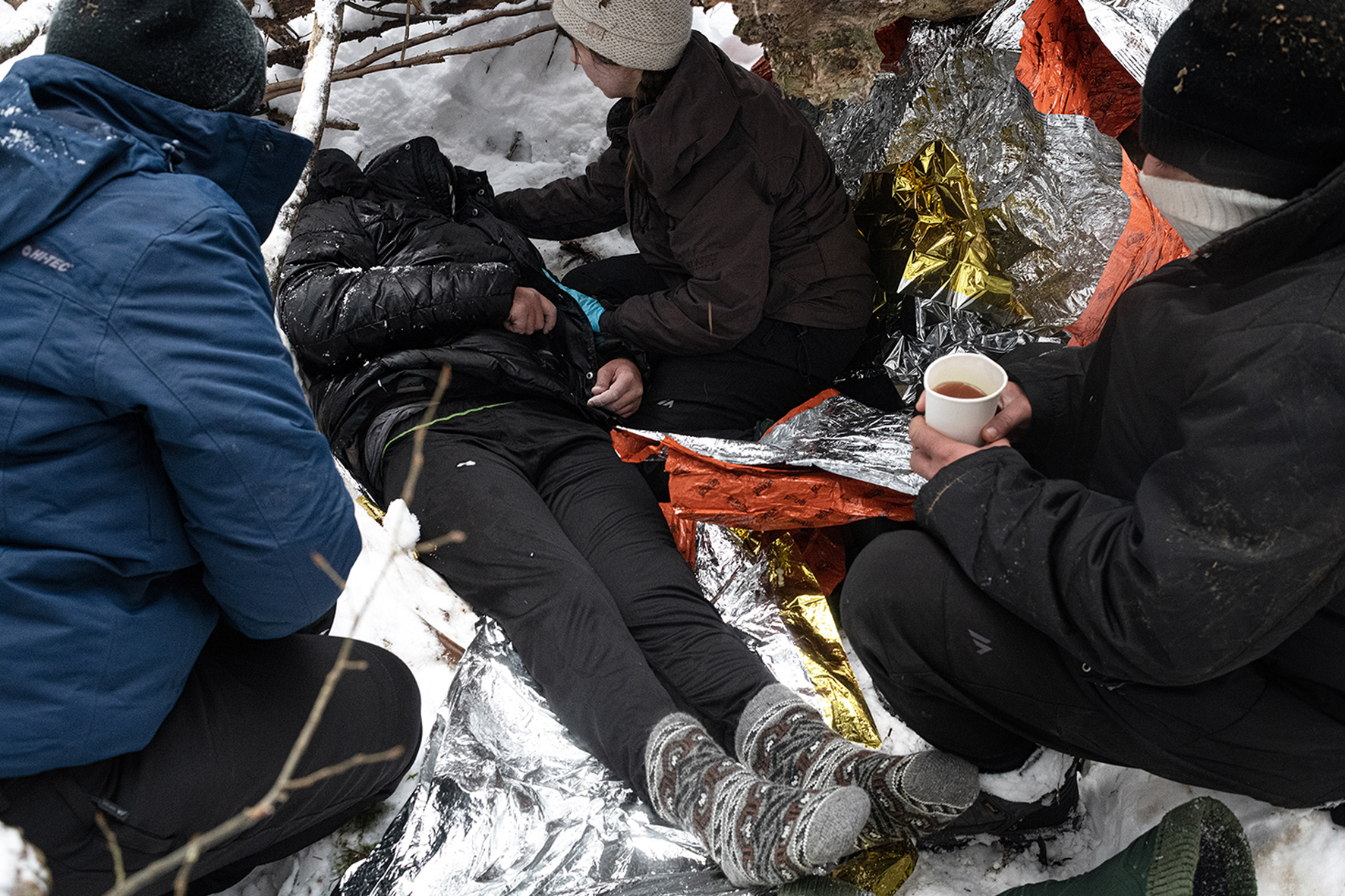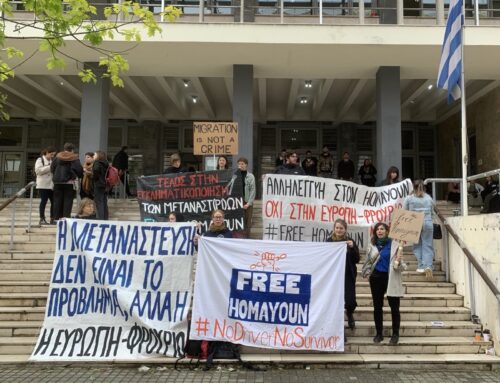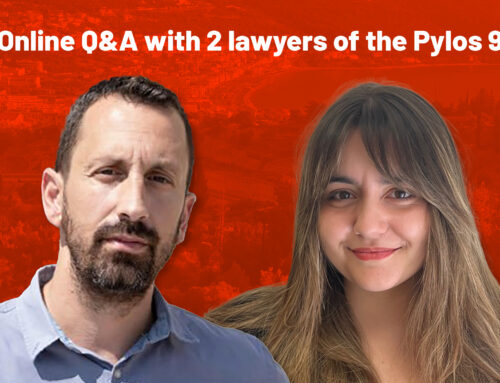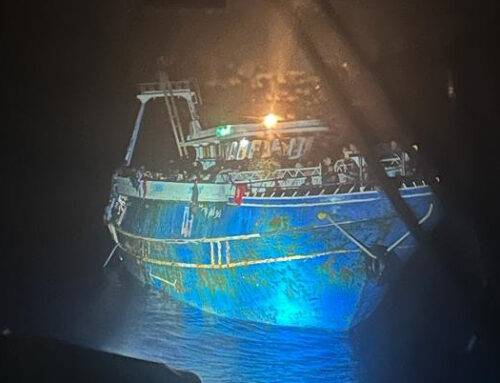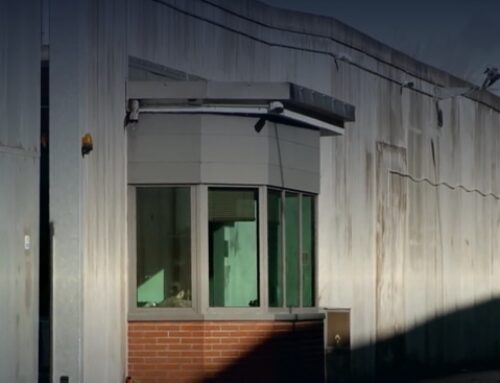Can you imagine what -15 degrees feels like at night in the forest without a sleeping bag on frozen ground between branches, moss and swamps?
Akram (32, from Yemen) and Mohammad (50, from Syria) were stuck in the border forest between Poland and Belarus for over 5 months. They often had no clean drinking water for days on end and filtered the polluted water from the swamps through a scarf.
“I don’t care which country takes me in. I just don’t want to die here in the forest,” Mohammad tells the activists from Grupa Granica.
The Polish activists and humanitarian aid workers of the Grupa Granica (“Border Group”) provide first aid in the “jungle”, bringing drinking water, food, medicine and clothing into the forest. In doing so, they save lives every day and also jeopardise their own integrity. Helpers face up to 8 years in prison for being charged as “people smugglers”.

Donate now for refugees on the Polish-Belarusian border
Like Akram and Mohammad, thousands of other refugees have experienced the same fate in recent years. The ongoing crisis at Poland’s border began in summer 2021. At the time, Belarusian ruler Alexander Lukashenko spread the message to refugees from war and crisis zones such as Syria, Afghanistan and Iraq that the route via Belarus to Poland was a safe route to the EU. Belarusian soldiers escorted groups of up to 50 people to the border and allowed them to cross on foot. Most of them were brutally pushed back by Polish border guards, but some managed to escape into the forest.
The Polish government soon established the area as a “red zone”: the border area was sealed off and the number of border guards quadrupled. No journalists or humanitarian aid workers were allowed into the zone without further ado. In November 2021, temperatures in the forest plummeted to minus degrees and the first people froze to death in their hiding places in the forest. Belarus set up a collective shelter in an unheated warehouse in the border town of Bruzgi. Many people who were accommodated there continued to place their hopes in the EU that it would free them and take them in. However, Poland had already begun building a border wall over 3000 kilometres long at a cost of more than 350 million euros.
When the Russian war of aggression in Ukraine began in 2022, Poland took in more than 1.5 million Ukrainian refugees. At the same time, however, the violence and the push-back against all other people seeking protection escalated. The Polish government successively spread the message that the refugees were agents who would carry out attacks for Belarus on Polish soil or were even abusers and paedophiles. With virtually no consequences or prosecution by the EU, the pushbacks and human rights violations on Poland’s eastern border reached an incomprehensible level of brutality.
People who have had to flee from Syria, Iran, Afghanistan, Yemen and other countries due to war and persecution are still trying to cross the “green border” to Poland for protection in the EU. And time and again they are brutally pushed back, beaten by border officials and forced back into the forest area on the Belarusian side with injuries and without warm clothing. And this is where the unbelievable game of the two states begins: Belarus is not letting people back into the country either. Trapped in sub-zero temperatures in the forest strip, people seeking protection – whether men, women or children – are often forced back and forth across the border fence for months on end, with no way out.
Our partner organisation Grupa Graniza supports people fleeing on the border between Poland and Belarus and documents human rights violations. The movement consists of activists from all over Poland as well as local residents in the border region.
People seeking protection who try to cross the “green border” are often violently pushed back and forth by border officials on both sides. They are often in a very poor mental and physical condition. They suffer severe pain from the barbed wire on the border wall, frostbite and beatings by border guards. Trapped in the forest, sometimes for months, many do not even have access to food and clean water.
With your donation to Leave No One Behind, we can support the Polish organisation in procuring first aid kits, drinking water and food, warm clothing and medical care for the refugees in the forest. Every contribution saves lives.
#LeaveNoOneBehind
Fotos: Hanna Jarzabek
Sources and further reading:
https://www.hannajarzabek.com/another-wall
https://www.ndr.de/kultur/Filmtipp-Green-Border,audio1562396.html
https://www.deutschlandfunk.de/lukaschenko-gegen-die-eu-wie-belarus-gefluechtete-als-100.html
Related News
We become active where states fail to act. But only with your support!
With our work we put pressure on German politics to take responsibility and finally change something! Your donations will be used for the #LeaveNoOneBehind campaign: For our own projects, as well as for funded projects and organizations that provide urgently needed support at the EU’s external borders and refugee routes.

